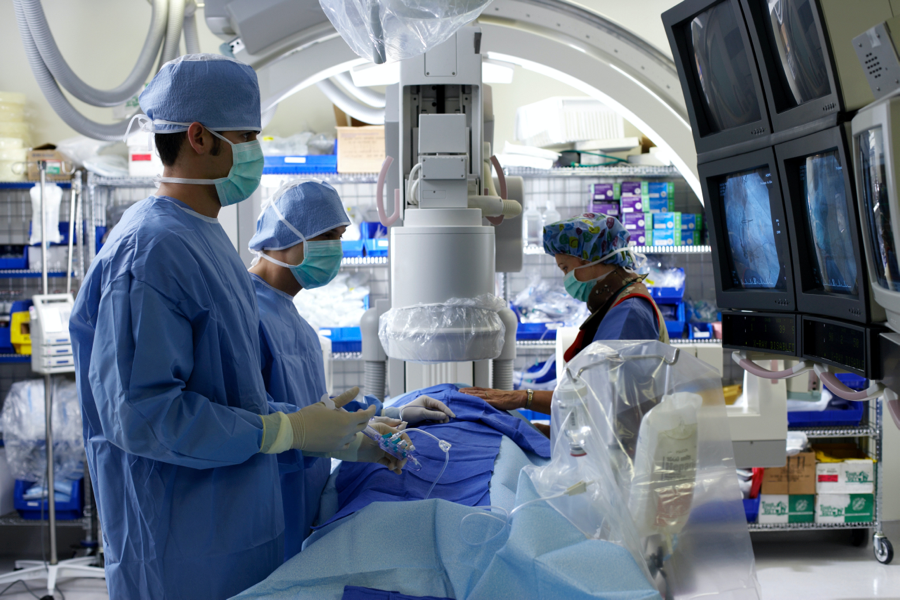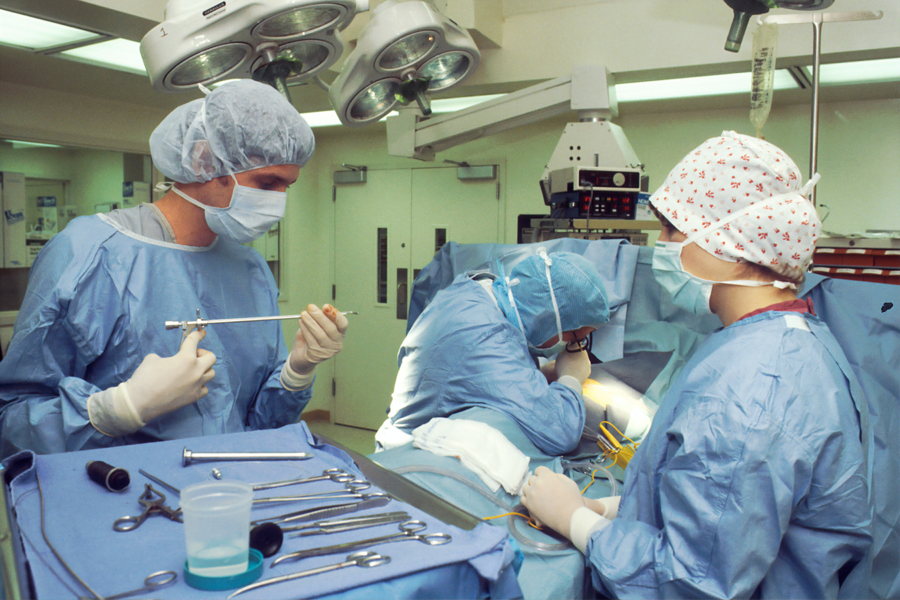
CAREER PATHS
A Closer Look at the RN Job Description
-
 Joanna Whitfield, MSN, RN
Joanna Whitfield, MSN, RN
- Last Updated: 09/30/2023

Registered nursing as a profession has received a lot of press this past year. Not only was 2020 designated “The Year of the Nurse and Midwife” by the World Health Assembly, but the world has been coping with the likes of a global pandemic not seen in recent memory. While scenes of nurses at the bedside are routine, not as familiar are the ways Registered Nurses (RNs) educate, empower, and illuminate health care for patients, families, and communities.
Registered nurses are employed in a wide variety of settings and industries because the comprehensive skill set and range of abilities of an RN are in high demand by employers. Some of the skills possessed by registered nurses include the following:
- Assessment and interpretation of health information
- Knowledge of and participation in research, including applying research findings
- Interpreting quantitative date
- Applying theory to research problems, including establishing hypotheses and evaluating evidence
- Health informatics and health technology knowledge and skill
- Health education abilities
- Delegating, supervising, training, and precepting other staff as needed
- Creative problem-solving, including perceiving patterns and structures
- Evaluating nursing care outcomes
- Using clinical judgment and decision-making abilities
- Forming relationships with stakeholders, including patients and families
- Forming partnerships with the healthcare team
- Promoting effective working relationships
- The ability to navigate cultural and social considerations
- Negotiation
- Empathy
- Communicate effectively orally and via required documentation, to include patient health education for patients and families, with other staff and facilities, electronic health records, and in the community as needed
In Hospitals
Most RNs work in hospital settings. In 2019, there were about 60% of the 3.1 million RN jobs in this country located in state, local, and private hospitals. In hospital settings, RNs may work in direct bedside care on the following:
- General care units
- Emergency care units
- Stepdown units
- Intensive care units
- Observation units
- Pre-admission units
- Post-anesthesia care units
- Operating room suites
- Procedure rooms
Registered Nurses (RNs) are essential members of healthcare teams, collaborating with physicians, nurse practitioners, physician assistants, respiratory therapists, phlebotomists, social workers, and dietitians. Their responsibilities may extend to supervising licensed practical nurses and medical assistants.
RNs find roles in various hospital units, from general medicine to surgical units. They also specialize in areas like infection control, obstetrics, cardiology, and more.
Their involvement in patient care varies; they may work directly with patients or assume roles as care managers, staffing managers, administrators, educators, or healthcare consultants, all contributing to patient care.
In hospital settings, RNs often work in shifts, ensuring 24/7 patient coverage, including weekends, holidays, and on-call duties. Their expertise and constant vigilance play a crucial role in identifying emergent patient status changes and alerting the team for timely intervention.
Outside of Traditional Hospital Settings
Ambulatory care offers diverse career paths for RNs beyond traditional hospital roles. Ambulatory nurses specialize in chronic illness management, injury care, pain management, and health education. Their adaptable roles encompass transitioning patients to acute care settings when necessary.
Outpatient Settings
Outpatient nursing occurs in various non-hospital environments, such as occupational health, home health, physicians’ offices, urgent care, and telemedicine. RNs also find opportunities in nursing and residential care facilities, schools, public health sectors (federal or state), and higher education. Across these settings, education remains a common thread, whether instructing patients, staff, families, or students, emphasizing health awareness and improvement.
Public health RNs, for instance, educate communities about chronic illness warning signs and symptom management. They may also organize and manage vaccination clinics, community health screenings, blood drives, and other initiatives to enhance community well-being.
Looking Beyond
Opportunities for RNs are continuing to grow and expand during the pandemic. Providing direct patient care for patients and residents of long-term care and nursing facilities, as well as across communities, RNs continue to be uniquely placed to make a difference in the health of people. With experience, ongoing education, and good work evaluations, the likelihood of advancement increases. If an RN wishes to advance in the business side of healthcare, becoming a shift manager, assistant nurse manager or head nurse would be the next step.
Becoming a skilled communicator, teambuilder, and adept with decision-making and judgment are key leadership skills to develop, no matter the role, to continue to advance. Beyond that, more senior manager opportunities, such as nurse manager, director of services, and director of nursing can lead to becoming a chief nursing officer for a facility or region, depending on the type of facility.
Advanced Practice Nursing
Another area where RNs can expand more includes advancing their clinical education. Advanced Practice Registered Nurses (APRNs) require a master’s degree and may practice as nurse anesthetists, nurse midwives, clinical nurse specialists, or nurse practitioners. If the clinical part of being an RN is very satisfying, this may be an option for RNs to explore.

























